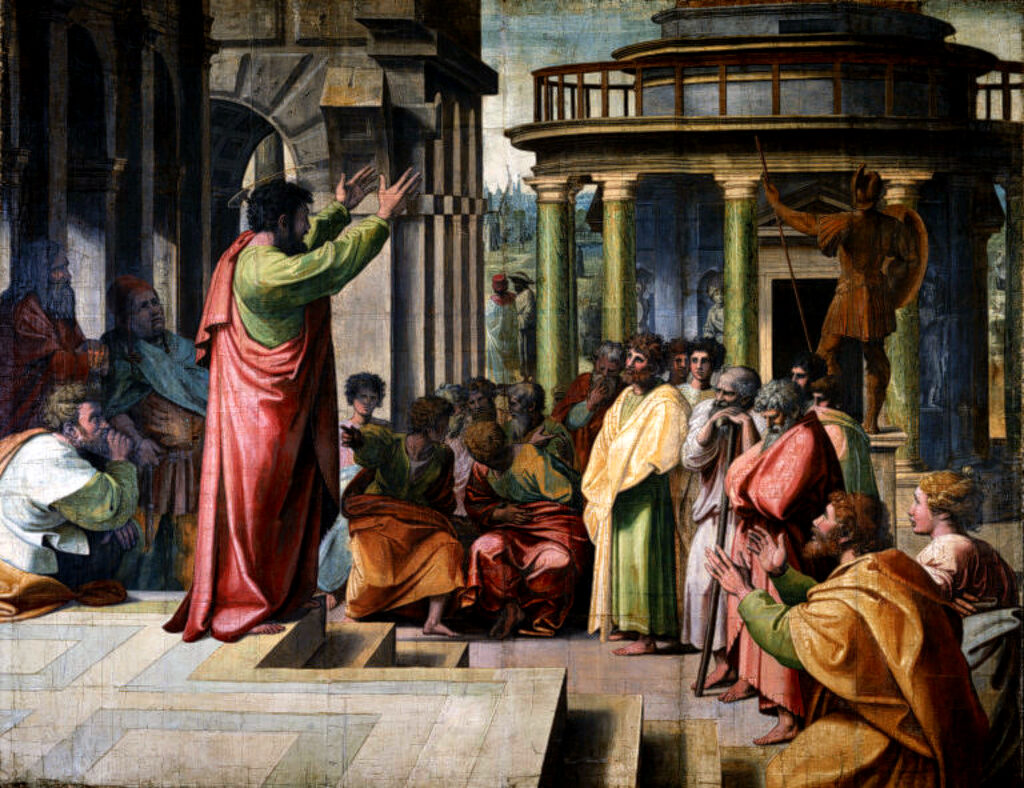
Known as the "Teacher of the Gentiles," St. Paul is honored by Christians as the first great missionary. Many of the New Testament epistles read in the worship services in this chapel were penned by Paul under the inspiriation of the Holy Spirit.

The gift of Mr. and Mrs. Robert R. Imse


The Apostle Paul, (c. 1657), Rembrandt
Introduction
St. Paul, also known as Saul of Tarsus, is one of the most prominent figures in early Christianity. His writings and missionary journeys played a crucial role in the spread of the Christian faith beyond its Jewish roots to the Gentile world. This report delves into his life, conversion, contributions to Christianity, and his legacy.
Early Life
Paul was born in Tarsus, a city in the Roman province of Cilicia, around 5 AD. He was a Roman citizen by birth and a Jew by religion. As a young man, Paul was a Pharisee and was well-versed in Jewish law and traditions. He studied under the famous Rabbi Gamaliel in Jerusalem, which provided him with a strong foundation in Jewish theology.
Conversion to Christianity
Paul’s conversion is one of the most dramatic and significant events in the New Testament. Initially, Paul was a zealous persecutor of Christians, responsible for the imprisonment and even death of many early followers of Jesus. However, while traveling to Damascus to arrest more Christians, Paul experienced a divine vision of Jesus. This experience led to his conversion to Christianity, after which he was baptized and began his mission to spread the Gospel.
Missionary Journeys
Paul undertook several missionary journeys across the Roman Empire, which are documented in the Book of Acts. His travels took him through regions such as Asia Minor, Greece, and eventually to Rome. Paul established several Christian communities and corresponded with them through letters, many of which are included in the New Testament and are critical sources of Christian theology.
Writings and Theology
Paul's epistles form a significant portion of the New Testament and are foundational texts for Christian theology. Key themes in Paul’s writings include salvation through faith in Jesus Christ, the role of the law, the resurrection, and the nature of the Church. Some of his most notable letters include Romans, Corinthians, and Galatians. His writings have been influential in shaping Christian doctrine and practices.
Legacy
St. Paul’s influence on Christianity is immense. His efforts in spreading the faith to the Gentile world helped Christianity grow from a small Jewish sect to a global religion. Paul is often regarded as the second most important figure in Christianity after Jesus himself. His teachings continue to be studied and revered by Christians around the world.
Conclusion
St. Paul's life and work are central to understanding the early Christian Church and its development. Through his missionary journeys and theological writings, he laid the groundwork for Christianity to become a universal faith. His legacy is a testament to the power of conversion and the impact of dedicated missionary work.

Pompeo Giralamo Batoni (1708-1787), St. Paul, Basildon Park, The National Trust, UK.

